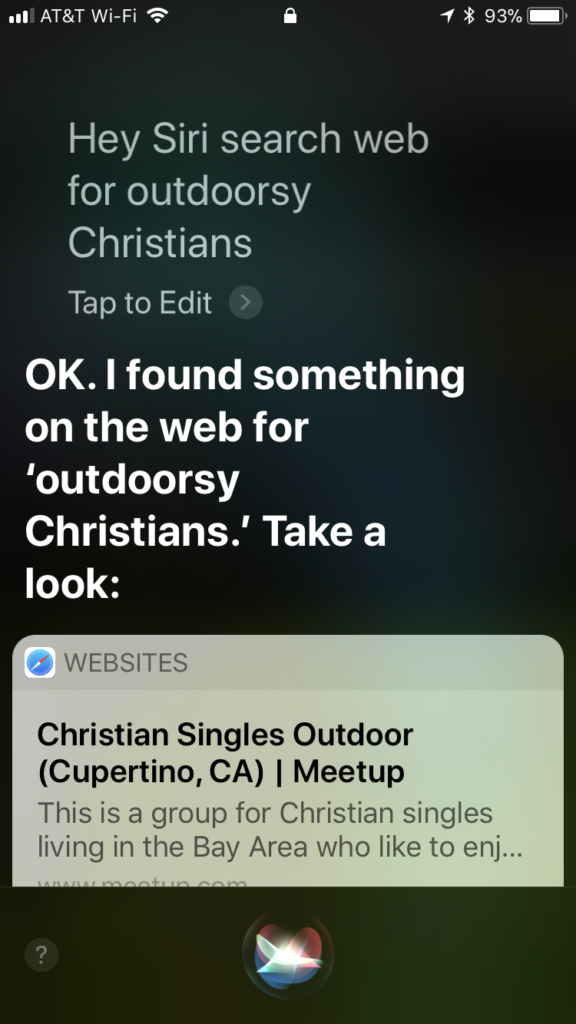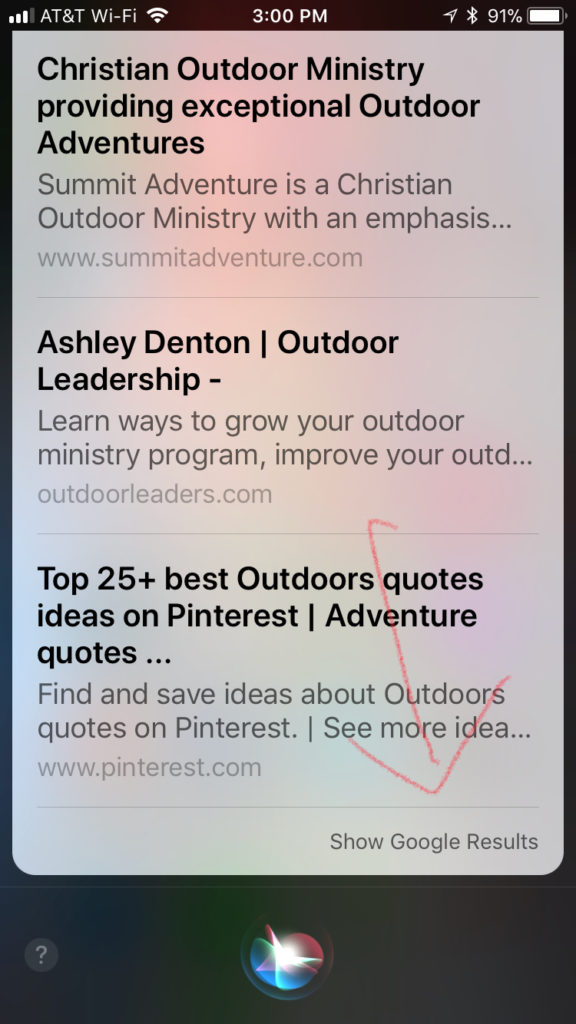Now that Apple has switched from Bing to Google for SIRI’s web search results, I have been trying to wrap my head around the implications for our clients. In keeping with Apple’s secretive ways, it’s not exactly clear there are any.
Here’s a voice query result for “outdoor seat cushions”:

The results are typically presented as a set of five results in an iOS tile showing the title, description snippet and URL.
These are the same as you would see in the Google SERP for this query. Note, they are stripped of any ads, featured snippets, instant answers, knowledge panels, etc. Google is not making jack off these queries. Neither was Bing btw. And local voice searches such as “gas station near me”, some of the most valuable queries, still show Apple Maps results. But I imagine the traffic and data Google gets from being the default search engine in Mobile Safari makes up for it.
Scrolling to the bottom of the tile reveals a small “Show Google Results” link that takes you to the Google SERP for the same query:

While I can’t definitively say virtually no one will click on the “Show Google Results” link, common sense leads me to believe that the CTR will be relatively low. So whatever traffic you are going to get from SIRI web searches will most likely come from clicks on the initial results tile. This is where it gets challenging.
Clicks to your site from various parts of the Apple ecosystem (iOS and MacOS) when done via Apple’s owned and operated properties (SIRI search, Spotlight Search, Apple Maps, etc.) typically appear as Direct traffic in your analytics. So there’s no real way to understand how well your site is optimized inside of Apple’s system other than tracking if Direct traffic from Apple devices is going up or down and compare it to Apple traffic trends from other channels, which is to say, it’s not the easiest data to make sense of.
If these voice search web results do drive significant traffic then the difference in your rankings between Google and Bing could make a difference, but again there would be no easy way to track how this translates to traffic from Apple devices.
Over the past few years I have been talking about Apple’s emergence as a source of some of the most valuable search traffic outside of its partnerships with Bing and Google, but until it provides more visibility into how its systems perform for businesses, it will be hard to get anyone except perhaps Google to pay attention.
If you still care about figuring out Apple’s search engine after reading this, this presentation might give you some ideas…


One Response Comment
I’m happy to see G results via Siri – not a fan of Bing (too many spammy results). Thanks Andrew 🙂